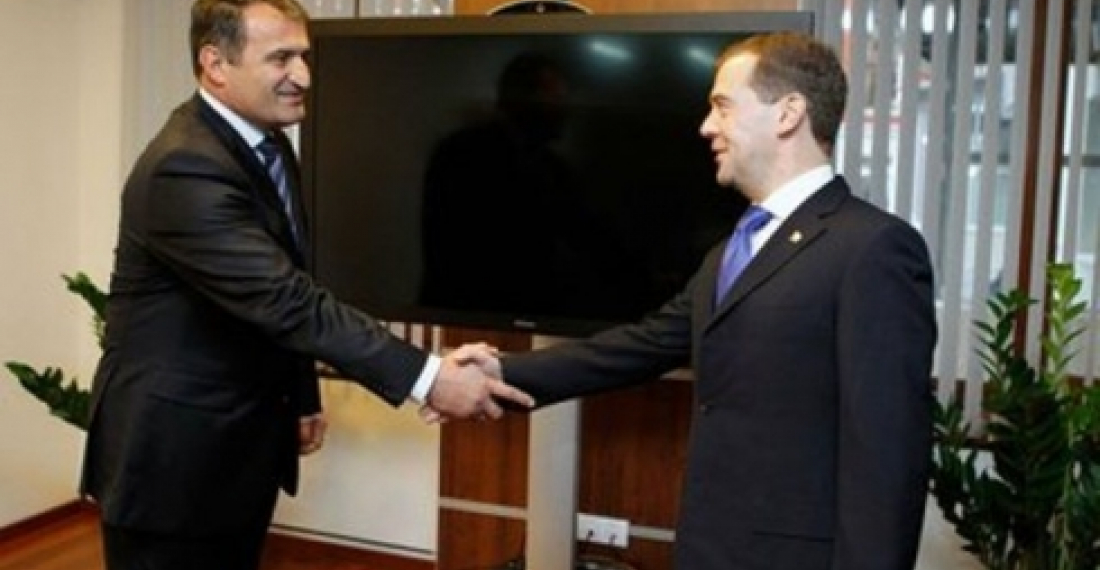The Russian president Dimitri Medvedev met in Vladikafkaz yesterday with Anatoily Bibilov, one of the candidates in the Presidential elections in South Ossetia. The first round of elections in the self declared Republic took place on November 13 and was inconclusive. The second round will be held on Sunday, 27th November. Bibilov will run against former Minister of Education Alla Jioyeva.
It has been known for some time that Bibilov, who is Minister for Emergency Situations in South Ossetia, was Moscow's favorite in the election, but the meeting was seen as a definite blessing of the Russian leadership of his candidature.
Commonspace.eu political editor said in a comment that this blatant interference in the politics of the self declared Republic reflects growing anxiety in Moscow that the situation in South Ossetia may turn into a big embarassment for the Russian leadership. There have been growing concerns that the massive financial assistance that Russia has extended to the territory may have been misused. The Russian leadership has also been taken aback by the results of the first round of the presidential election which saw Bibilov running neck and neck with a relatively unknown person in the poll and way short of the 50% needed for victory in the first round. South Ossetia is a small society made up of several large family clans and the political dynamic may not be fully understood in Moscow. The blessing of Bibilov will be enough to secure his victory in the election on Sunday, given the territory's reliance on Russia. It will however not be enough to endear him to many Ossetians who would have seen Medvedev's open endorcement as unnecessary meddling.
Russia recognised the independence of South Ossetia after the 2008 Georgia-Russia War. It has recently signed a long term agreement for the stationing of military forces on South Ossetian territory. Whilst the Russian intervention in South Ossetia has often been described by the Kremlin as a humanitarian act to protect civilian lives, in a speech during his Vladikafkaz visit yesterday the Russian President said that the intervention was necessary to halt the advance of NATO enlargement in former Soviet states.
source: commonspace.eu
photo: President Dimitri Medvedev of Russia greeting South Ossetian Presidential candidate, Anatoly Bibilov in Vladikafkaz on 21 November 2011 (picture courtesy of the Press Service of the President of Russia)







